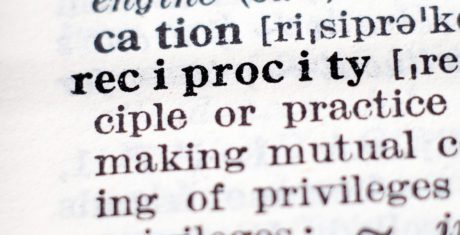By Jill Calder, 1997 Williamson Alumnus and LV Program Speaker
The notion that trust is hard won and easily lost is something of a truism. Yet almost every day we hear of leaders who have knowingly engaged in behaviours that put at risk the trust their employees, customers, shareholders and/or stakeholders have in them.
They knowingly engage in endangering something that 94% of senior leaders in the public and private sector say is a primary asset of their organisation – reputation.[1]
It is easy to point at the usual suspects, those who have been through the forensic process of a Royal Commission or a criminal trial, but sadly it seems this behaviour occurs more broadly.
Is it any wonder then, that Brene Brown, a research professor at the University of Houston, has taken the world of trust and reputation by storm, with a TED Talk that has been watched nearly 45 million times and five New York Times bestsellers to her name.
“Trust is earned in the smallest of moments. It is earned not through heroic deeds, or even highly visible actions, but through paying attention, listening, and gestures of genuine care and connection,” she says.
Recent research on trust and reputation undertaken by SenateSHJ shows the cumulative effect of the small moments is high on the list of what triggers a loss of trust. According to SenateSHJ’s Reputation Reality Report 2019, customer dissatisfaction is now the most significant trigger for reputational risk in Australia, rising from fifth place in the last survey to number one in the current survey.
Customer satisfaction, or lack of it, was the core reason behind the Royal Commission into Misconduct in the Banking, Superannuation and Financial Services Industry. Vulnerable people were treated badly and denied a voice by large institutions. The same story is true in so many other enquiries and commissions.
In fact, the research identified three key factors which play the biggest role in damaging organisational and personal reputation:
- Unstructured and poor communication
- Inauthentic demeanour by executives
- Lack of ownership of issues.
So, what can be done to foster trust and protect the reputation of individuals and organisations?
There is no single answer, but purpose and values are somewhere near the centre. There must be board and executive buy in to matching values and purpose with language and behaviours at all levels of the organisation. There must be a keen understanding of how your customers (or stakeholders) see you and a willingness to see things from their perspective. Data must inform decision making and organisations must be prepared to make and effectively communicate the hard decisions necessary to drive change.
Finally, because culture is set by what you are prepared to walk past, everyone in the organisation should be empowered to call out action which does not fulfil the company’s purpose or its values.
I recently presented to Leadership Victoria’s Leading Edge series on The Four Rooms of Change®, a theory and model for change developed by Swedish psychologist Claes Janssen and used world-wide. The theory is used to deepen awareness and understanding of how we approach and respond to change. In reflecting on trust and reputation for this piece, I found the following description in The Introduction to The Four Rooms of Change® particularly relevant: “One of the most important tasks in every organisation, large or small, is to contribute to an open atmosphere where serious discussions about the climate at work, relationships between staff members and results can be addressed.”[2]
For more information on Reputation Reality 2019 go to: www.senateshj.com/insight/reputation-reality-2019/
For more information on The Four Rooms of Change®, go to: www.fourroomsofchange.com or contact jill@senateshj.com.au
[1] Reputation Reality 2019, Trans-Tasman perspectives on reputation and risk, SenateSHJ
[2] Introduction to The Four Rooms of Change®, Claes Janssen, ©Claes Janssen and A&L partners AB 1997, 2000, 2005, 2006, 2009.



